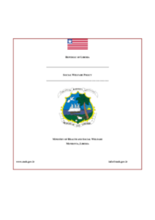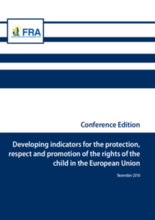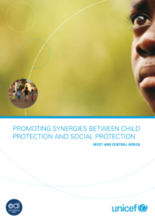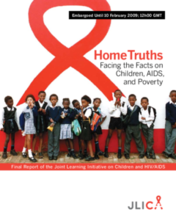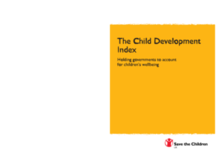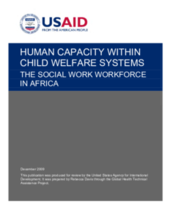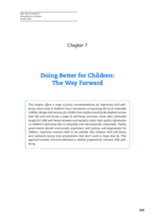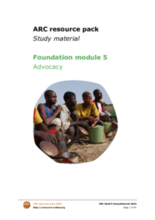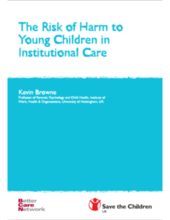Displaying 871 - 880 of 1028
Analysis of policy and service model used to identify barriers in the delivery of alternative care services for children.
This Social Welfare Policy is intended to provide direction for reforming the social welfare sector in Liberia.
Outlines the development of a common set of indicators for EU member states to measure children's rights and collect data.
Focuses on children’s vulnerabilities and risks related to an absence of protection from violence, abuse and neglect, and the ways in which measures to address such vulnerabilities and risks can be more effectively integrated into social protection policy frameworks in the West and Central Africa region.
Evaluates a number of fundamental misperceptions that have undermined the global response to children affected by the epidemic, and sets out evidence on how to better respond to their needs.
Analysis of the considerable variation between countries, globally and within regions in terms of the rights, opportunities and wellbeing that children enjoy and the national political and policy choices affecting them.
This document informs stakeholders about the opportunities for and constraints on building the social work workforce within the child welfare sector in Africa.
This document is the seventh, and final, chapter of Doing Better for Children: The Way Forward, produced by the Organisation for Economic Co-operation and Development. The aim of this chapter is to contribute to the policy debate on child well-being, synthesising the previous chapters and drawing on the existing research and policy literature.
This module provides practical information, guidelines, examples and tools to support organisations and key actors to undertake advocacy to bring about positive change for children in humanitarian contexts.
Analysis of the impact of institutionalization on young children with core recommendation for policy and practice to ensure children's right to family is upheld.

